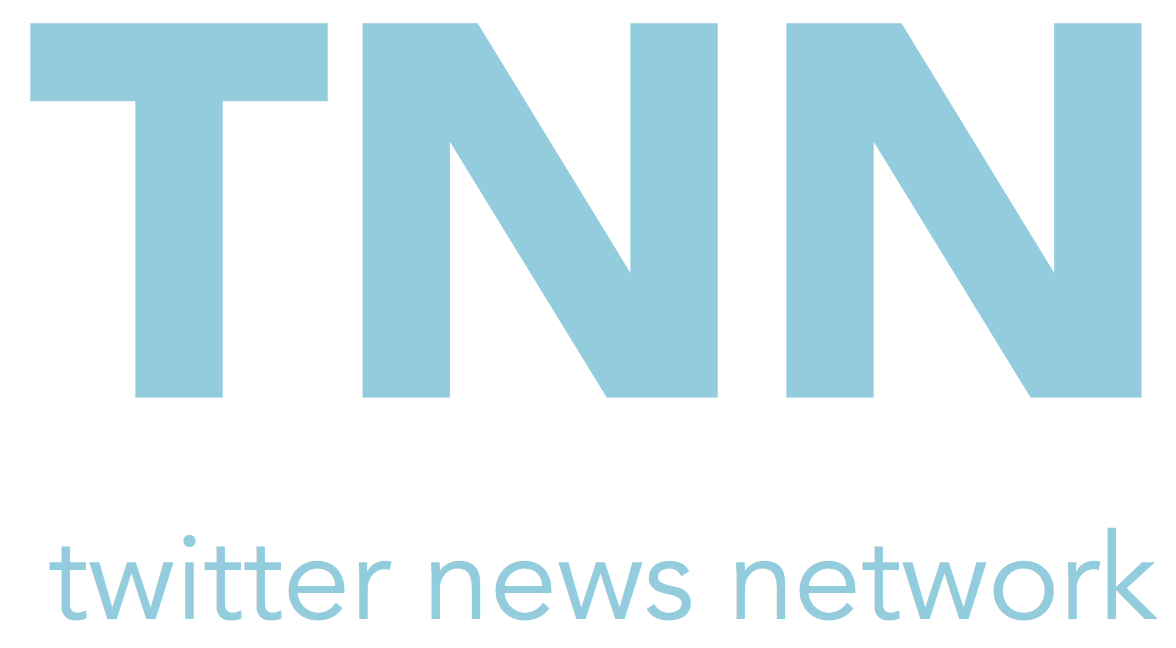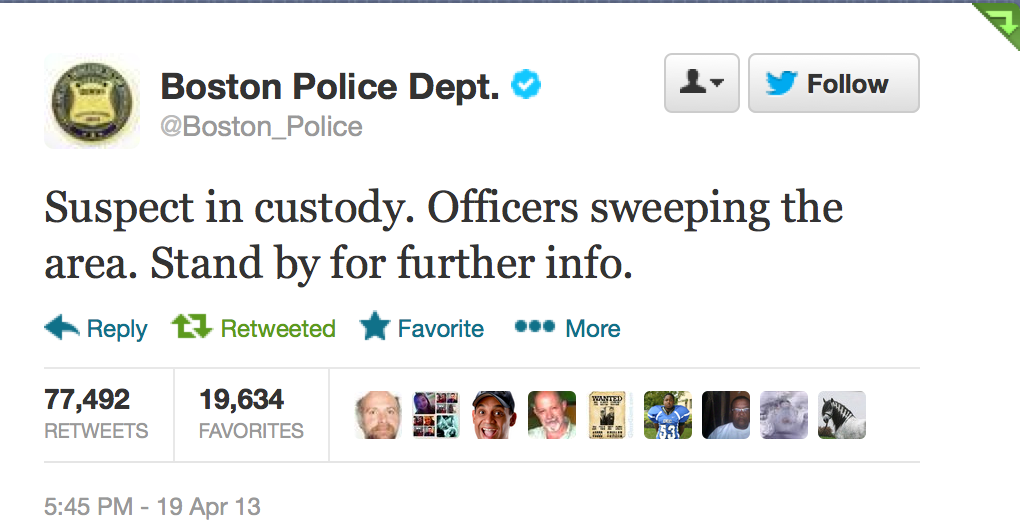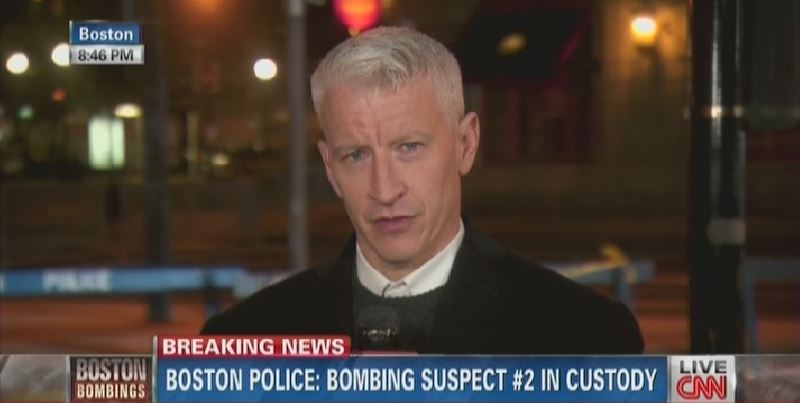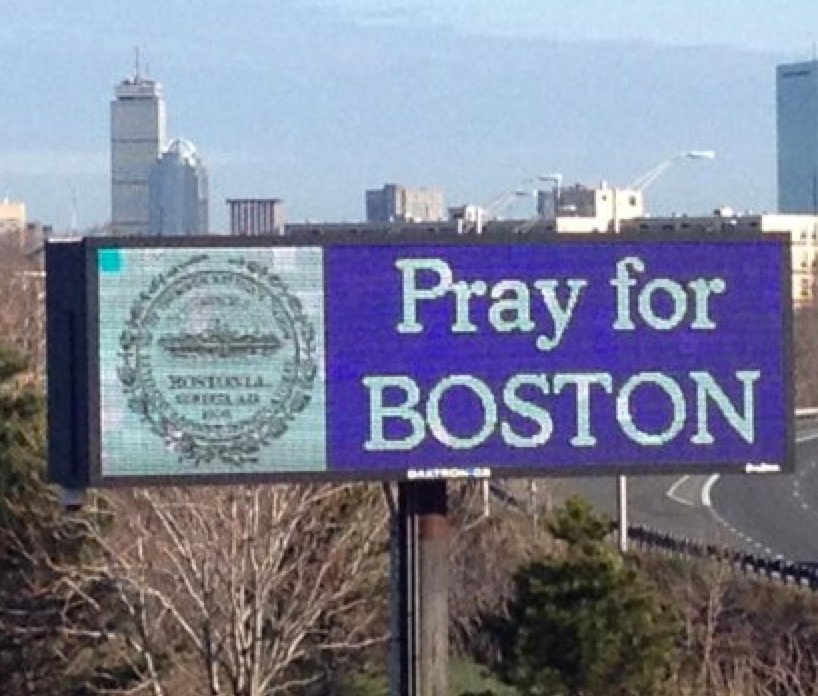Like many, I found myself gripped by the real-time reports that poured in on the evening of April 19th…Boston Police were in close pursuit of the second Boston Marathon bombing suspect. Up to this point, I mostly followed the story via @CNN and CNNLive. I noticed however, that some of the most interesting updates were shared via Twitter directly by the Boston Police (@Boston_Police).
As police surrounded the second suspect while he hid in a recreational boat in the backyard of a home in Watertown, I shifted from online to TV. Yes…my phone was nearby and it was in fact my second screen. I tuned in to Anderson Cooper on CNN to witness the apprehension as it happened.
Cooper cut to a report from a CNN field correspondent, who shared unconfirmed cheers among local residents. In that moment, I saw a Tweet come through on my phone from @Boston_Police, “Suspect in custody. Officers sweeping the area. Stand by for further info.”
Just then, something truly significant had occurred. Once again, we were reminded that…News no longer breaks, it Tweets.
Anderson Cooper then asked the reporter to hold on as he looked down at his phone and on live television, shared with the world, that Boston Police had confirmed that the suspect was in fact in custody…via a Tweet on Twitter.
TNN, the Twitter News Network is a powerful thing. In real-time, people create an incredible information network that expedites awareness. While it also raises the need for real-time fact checking, the information divide that Twitter introduces between citizen media and mainstream journalism is notable and game-changing.
Here, the Boston Police broke the story via Twitter and essentially informed and scooped traditional media in the process.
We do in fact live in interesting, and tweetable, times…
Connect with me: Twitter | LinkedIn | Facebook | Google+ |Youtube










It’s not a matter of “scooping.” It’s simply the bridging of the void (lack of technology) that kept newsmakers – police, fire, celebrities, politicians, whomever – from connecting directly with people interested in what they had to say. It’s extraordinary for as long as it remains new, but Anderson Cooper (or you, or me) reporting something because police said it via Twitter is no different in substance that someone reporting that police said it at a news conference, or in writing, or … I’m glad Boston Police had a news conference shortly thereafter because I worry that at some point, someone will make an announcement of that scale via Twitter (or some other channel) and then clam up. Perhaps what’s next is that the “news conference” will be ON Twitter (or some other publicly accessible channel) – and the questions can and will be asked by anyone! – Tracy
It’s one thing when the news came directly from the source, the Boston Police, but unfortunately slippery slope of bad reporting happens (as it did when the bombing event first started…i.e., #of ppl dead and/or injured), when unreliable or unchecked sources chimes in on the TNN and the supposedly reliable news media jumps on the band wagon to report on it before fact checking just to be first in “breaking” the news.
In addition to Twitter, I, like many, many others were also listening to the Boston Police radio traffic as streamed over UStream. It reported the news over the web, of course, even ahead of the Tweet, and a LONG time ahead of the news networks on TV. The Web is shifting all forms of news, and journalism. For an interesting point of view here, see UStream’s blog: http://www.ustream.tv/blog/2013/04/20/new-media-vs-old-media-which-side-did-you-partake-in-yesterdays-play-by-play-in-boston/
Great comment Gary…will take a look.
Thanks for the great article, Brian.
This will be a trend that can only get more accentuated with the advent of ‘real time’, online streaming and wearable technology such as Google Glass, which I think will put real pressure on the 24 hour news networks and also for the audience, who will now have a surfeit of uncurated source material to digest and process.
Great comment…and so true!
I wonder if this means that, with time at a premium, ‘mobile touchscreen speed typing’ will become a core skill of broadcast reporters – i.e. resurrecting shorthand.
I believe that so many people get the news nowadays from their phones and especially Twitter. There’s always someone on the news Tweeting as well during commercial breaks to keep viewers up to date and those that follow them. I don’t have a television so I was kept up to date about Boston through my Huffington Post app and my Twitter account. I think that Twitter is very fundamental now in this day and age in regards to current and urgent information that is coming out. This is just one of the many examples that proves this.
This is all true, but as others have noted, the era of fact checking is dead. One moment everyone is cheering that the suspects are caught, the next all the news sources are back tracking with egg on their faces as this is found to be false. Today a false news tweet about a white house bombing tanks the market and the web is full of conspiracy nuts who think there was some sort of cover-up. Twitter makes us informed faster, but it also makes us misinformed faster.
So true. Great comment!
Social Media is a great tool businesses can use to obtain valuable
insight into the interests and opinions of consumers which is vital for
maintaining relevancy.
Thanks for writing such a great post about the TNN. The social media coverage of the bombing was fascinating. I don’t think social media has ever been used in such a way. Unfortunately, this did lead to some false information being spread.
In the past, people relied on media for news. Now, media is relying on social media.
Great article that truly illustrates how Twitter has taken over as one of the most efficient way to communicate new, important happenings around the world. It’s character limit and user friendly interface allow people to not get bound by making a post wordy and pretty but rather concise and easy to understand.
We do live in interesting times where people a turning more to Twitter for their news information rather than turning on a television set like we use to. I was like any other person that night: glued to CNN, siting on the edge of my seat and waiting to find out how this story would unfold. I can honestly say, however, that the one thing that I will remember, other than the suspect being carried away in an ambulance, will be how the Boston Police Department was keeping everyone informed by Twitter. The question that I have is why not turn to Twitter? It is quick, easily accessible, and direct. This is not the first piece of news to break on the “TNN.” Who remembers the day Michael Jackson died? TMZ broke the news on Twitter before it ever hit the airwaves as it seemed that every news station in America was camped outside of the hospital waiting on a confirmation. These are indeed interesting times that we live in.
Great comment Jake. Thank you!